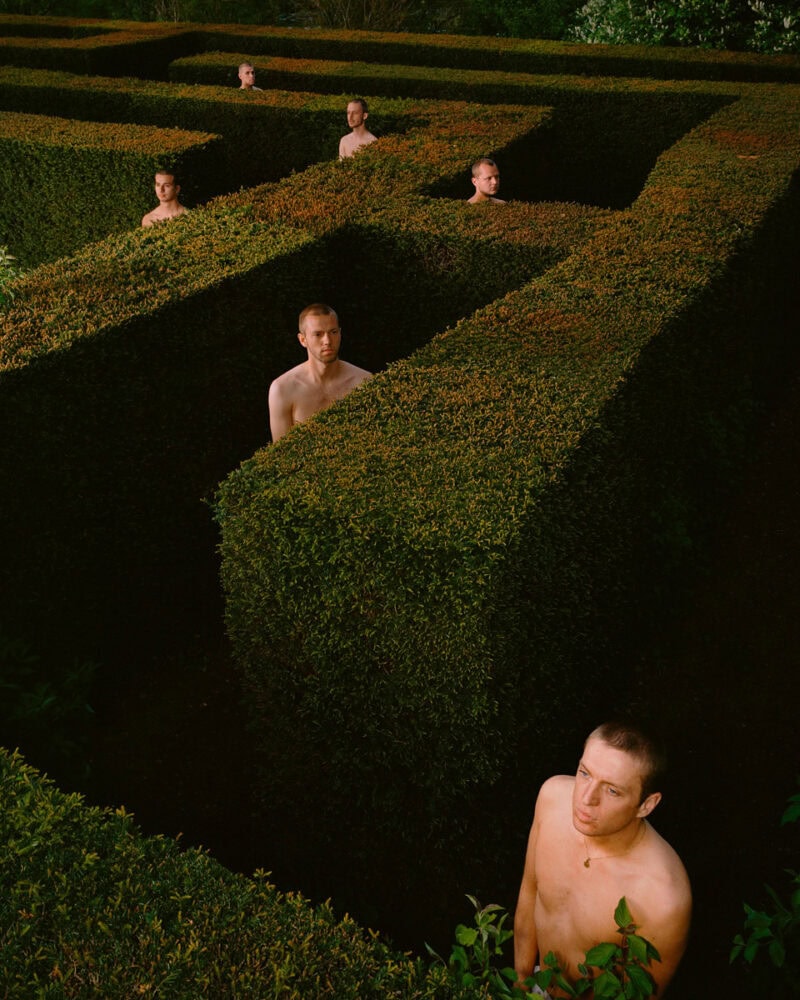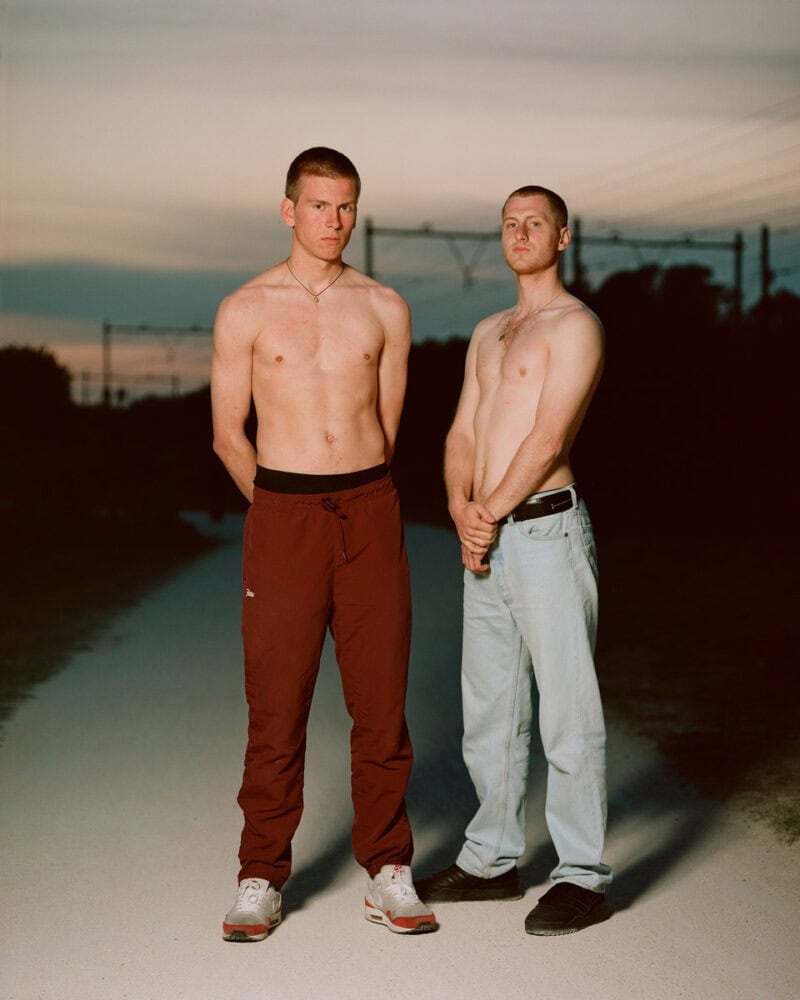This is an unpublished project premiered today on C41 Magazine.
Iris Haverkamp Begemann (Dordrecht, 1989) is a photographer based in Amsterdam, the Netherlands. Growing up she has always been shooting film, especially pictures of her loved ones. Now, she’s mostly known for her editorial, documentary and portrait photography. She has a BA in Journalism from the Amsterdam University of Applied Sciences. Afterward, she completed two years of studying photography at De Fotoacademie in Amsterdam. Although this study mainly focuses on digital photography, Iris returned to her first love, analog photography. Interested in philosophical and scientific theories questioning the relations between human beings and/or nature, her photo series investigates social conventions and human behaviour.
About ‘Covheads’ – words by Iris Haverkamp Begemann:
“Covheads”, which has been shot in 2020, is a project regarding the recently emerged phenomenon of ‘Cov Heads’: people who shave their heads in response to COVID-19. The project can be seen as a time document that seeks to capture and hopefully preserve both the tragic and romantic zeitgeist of the crisis as an archival document of the changing city of Amsterdam. Apart from charity movements (including fundraising) or for practical reasons (such as that the hairdressers are currently closed), the shaved head appears to symbolize a deeper meaning for many.
For Iris Haverkamp Begemann this photo series confronts her with various prevailing associations that the shaved head evokes her. Our cultural and historical frame of reference transforms the shaved head into a haircut loaded with different meanings and references to, for example, the Holocaust, muff girls, gabbers, medical conditions and religious beliefs.
From the perspective of Christianity, as explained in the Old Testament, being bald is associated with experiencing negative emotions such as mourning. Head and hair represent intelligence, wisdom and truth; where a shaved head marks a loss of divine truth. Buddhist monks, on the other hand, shaved their heads to show that they renounced earthly pleasures. From the Eastern religion, especially Buddhism, the shaved head carries a meaning of order, purity, determination and enlightenment. Because hair is often used as a metaphor for the human illusion of being ignorant – “weeds of ignorance” – the removal of hair implies getting rid of ignorance and a return to a pure state of mind, both body and soul.
The corona crisis has deprived us of much of our earthly pleasures. The pre-corona society focused primarily on generating income in order to participate in the consumer society. Driven by a capitalist system, we pursued socially desirable standards of success. Now that society is paused, it offers some people a moment of reflection to perhaps turn things around.
After investigating the motivation of the portrayed people for shaving their head, Iris Haverkamp Begemann concluded: a shaved head against the norm, against expectations, without vanity, without expectations from your employer or environment, because now everything is different. But also, now that we have to stick to the rules and stay at home obediently, shaving your head offers a feeling of control, self-determination and rebellion. Against society, in which we ourselves participated equally, but with which we, in retrospect, apparently lost a sense of self-determination.
The pandemic places things in a new perspective, such as that it puts the insignificance of man against the power of nature. Faced with death, things like vanity, conventions and finery seem insignificant, and there is a desire to return to the essence. More than ever, there is an urge for authenticity and purity, fuelled by true love and satisfaction with what you have, rather than what is considered cool or beautiful.
Even though hair will grow back eventually, we’ll hopefully preserve the encountered enlightenment. Shaving the head is a physical manifestation of this change. An act of devotion, a rite, a consecration. It is the marking of a moment, an event, it is a turning point: breaking with the past. The end of an era.










